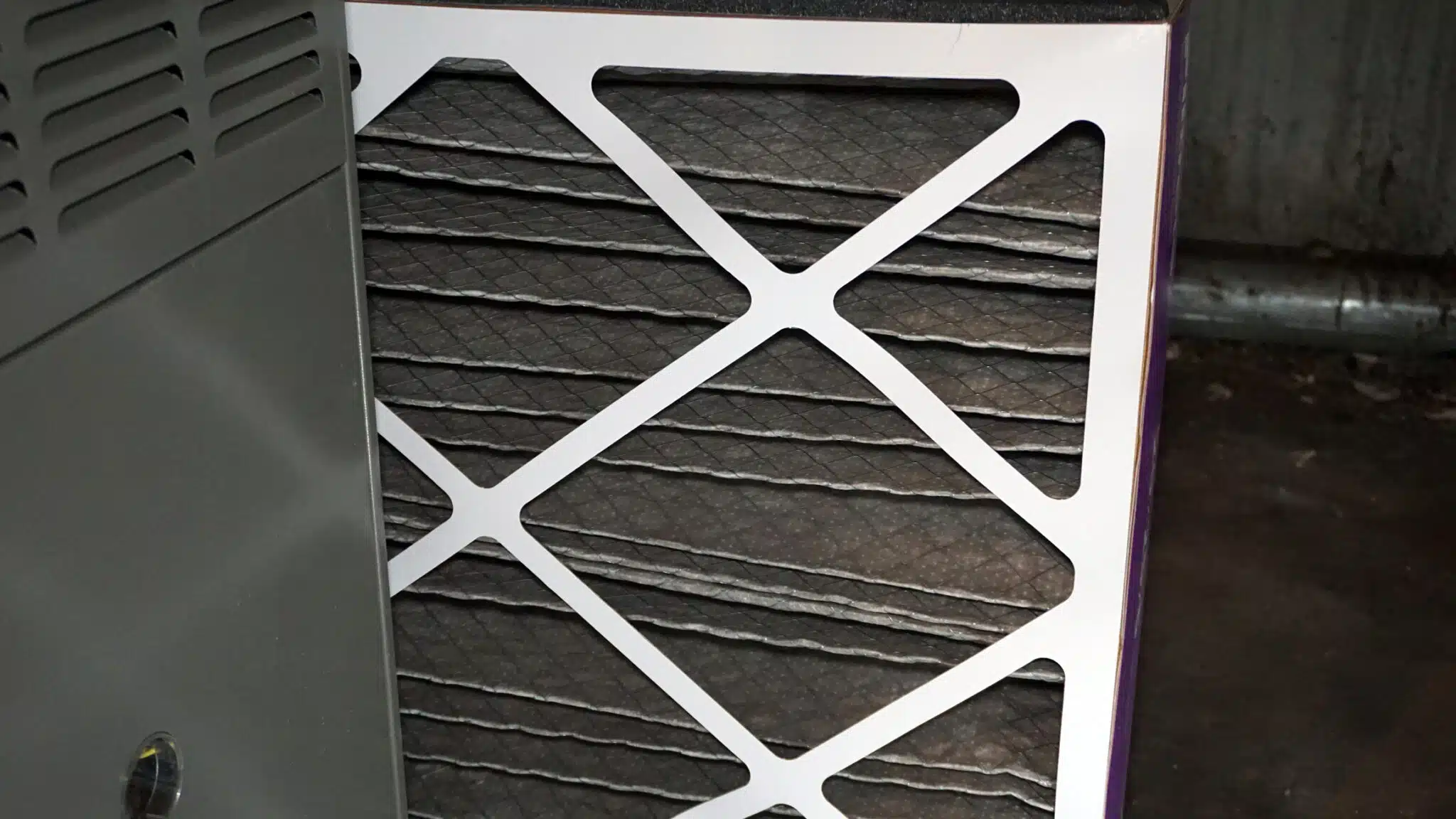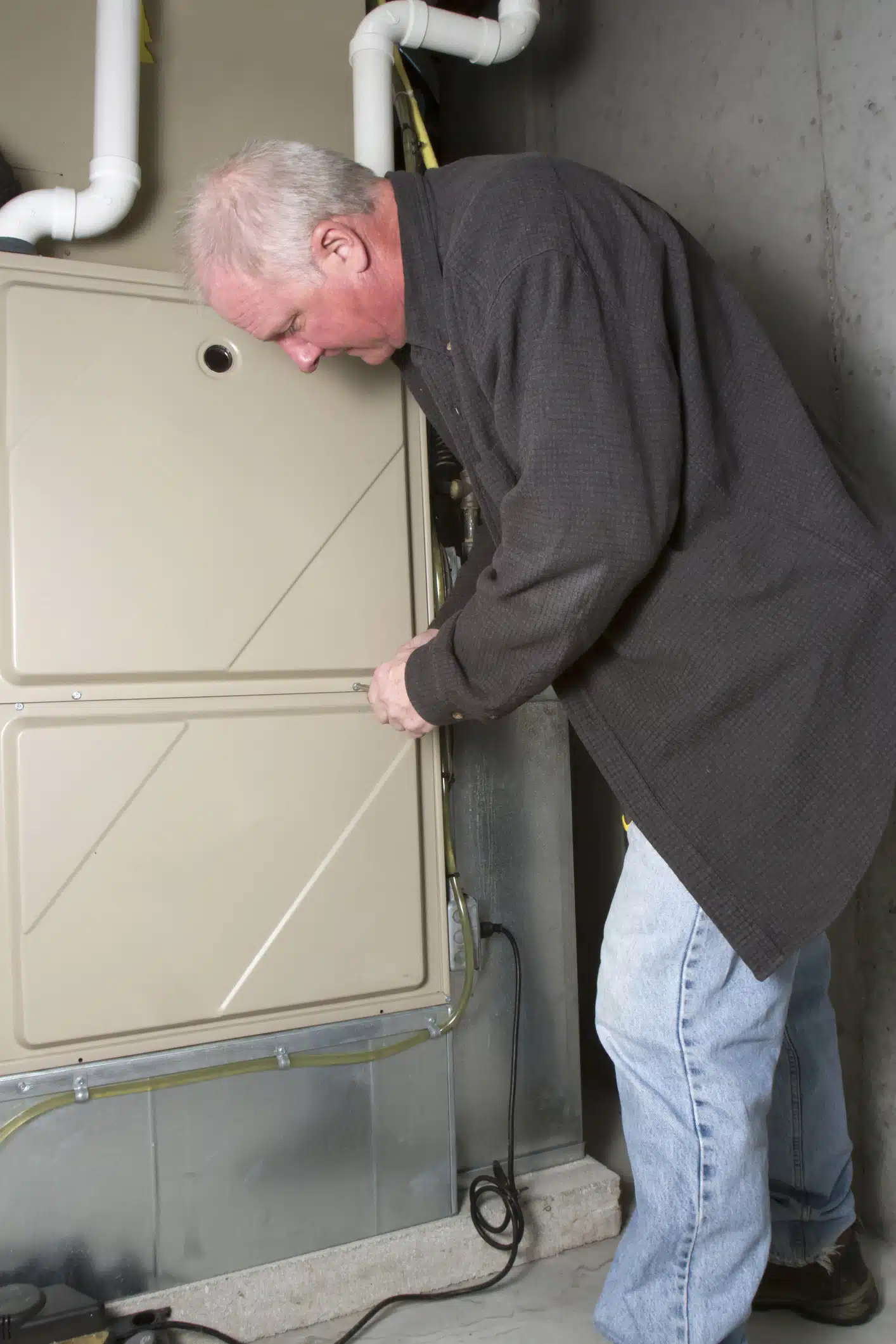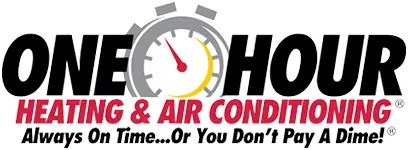Furnace noises often signal problems. Addressing them early can prevent costly repairs or breakdowns during colder months.
Understanding furnace noises helps ensure efficient heating, avoiding issues like breakdowns or poor performance, and keeping homes in Doylestown, PA, Harrisburg, PA, and Lancaster, PA comfortable.
Common Furnace Noises and Their Causes
Furnaces play a critical role in keeping homes warm, especially during colder months. However, they can sometimes make unusual sounds, signaling that something may not be functioning correctly.
Understanding common furnace noises and their causes can help homeowners troubleshoot issues early.
This can prevent larger problems or even hazardous situations from arising. In this guide, we will explore the most common furnace noises and what they typically indicate.
Banging or Popping Noises in a Furnace
One of the most unsettling furnace noises is a loud bang or pop when the system kicks on or shuts off. In many cases, this noise stems from the expansion and contraction of metal ductwork as it adjusts to temperature changes.
While this can be a normal part of furnace operation, it’s not always the case. If the banging or popping comes from the furnace itself, it could be due to a delayed ignition issue. Gas builds up in the combustion chamber and ignites all at once, causing a loud noise.
This problem can be serious and should be addressed by a professional immediately to avoid any potential safety hazards.
Whistling Noises from the Furnace
A furnace that whistles often tells you that something is restricting airflow. This can happen when the air filter becomes clogged with dust and debris. When air struggles to pass through, it causes a high-pitched whistling sound.
The solution to this problem is often as simple as replacing the filter regularly. However, whistling can also occur if your ducts are too small to accommodate the airflow your furnace requires.
If changing the filter doesn’t resolve the noise, a technician may need to inspect your ductwork for obstructions or other issues.
Squealing or Screeching Furnace Noises
Squealing or screeching noises coming from your furnace can indicate mechanical issues. Over time, parts like the blower belt or motor bearings can wear out or become loose.
When these parts malfunction, they create friction that results in a loud, high-pitched noise. In some cases, lubricating the moving parts can resolve the problem.
However, if the components are too worn out, they may need to be replaced by a technician. Regular maintenance is essential for keeping these parts in good working order and preventing breakdowns.
Rattling Furnace Sounds
Rattling noises from your furnace can be a sign of loose parts. Sometimes, panels or screws may become loose due to normal wear and tear.
Tightening these components can often stop the noise. However, rattling can also indicate more severe issues, such as a cracked heat exchanger.
A damaged heat exchanger is a significant concern because it can lead to dangerous carbon monoxide leaks.
If you cannot quickly identify the source of the rattling or if the noise persists, it’s crucial to have a professional inspect your furnace.
Clicking Noises in the Furnace
Hearing a clicking noise from your furnace, particularly when it starts up, can point to an issue with the ignition system.
Furnaces that use electronic ignitions may click as the system tries to ignite. If the furnace fails to start despite the clicking, the problem could lie with the gas valve or flame sensor.
In some cases, a faulty relay switch might be to blame. Clicking noises, especially if they accompany a failure to ignite, should be addressed by a technician to ensure the system is safe to operate.
Booming or Rumbling Furnace Noises
A booming or rumbling noise coming from your furnace could indicate burner problems. When burners become dirty or misaligned, gas can accumulate before igniting, creating a booming sound when the furnace starts.
In some cases, this issue might also lead to rumbling noises after the furnace shuts off, indicating incomplete combustion. A technician can clean and realign the burners to ensure safe and efficient operation.
Humming Sounds from the Furnace
A low humming sound from the furnace is usually normal and indicates that the system is running. However, if the humming becomes unusually loud, it could point to an issue with the blower motor.
Excessive humming may indicate that the motor is struggling to function correctly, potentially due to an electrical problem or the need for lubrication. This is typically a sign that the motor should be inspected before a larger breakdown occurs.
Rumbling Noises After Shutdown
If you hear a rumbling noise after the furnace has turned off, this could mean the burner is still running. In most cases, this is a sign that the pilot light or gas valve needs attention. If the gas valve doesn’t close properly, it allows gas to continue flowing, causing a rumbling sound. This issue should be addressed immediately to prevent potential safety hazards.
Whooshing or Thumping Noises
Whooshing noises often come from the air moving through the system but can also indicate that something is blocking the airflow. If the thumping sound occurs as the blower turns on, it may be due to an unbalanced blower wheel.
The imbalance causes the wheel to hit other components inside the furnace, creating a rhythmic thumping noise. A professional inspection can help diagnose this issue.
Silence When the Furnace Should Be Running
While silence may not be a noise, it’s essential to mention in this context. If your furnace is supposed to be running but you hear nothing, it may indicate a malfunction.
A silent furnace that fails to start can mean a range of issues, from thermostat problems to ignition failures. Silence could signal a complete breakdown, which requires immediate professional intervention.
Furnace noises are often a signal that something isn’t functioning correctly. By identifying and addressing these sounds early, you can prevent costly repairs and ensure your furnace operates safely and efficiently.
Regular maintenance and inspections are key to keeping your furnace quiet and effective throughout the heating season.
Why Are These Furnace Noises Happening?
When your furnace starts making unusual sounds, it’s a sign that something may be wrong. Different types of furnace noises can point to specific issues, and addressing them early can save you from costly repairs. Here are the most common causes of furnace noises and what they mean:
- Dirty Burners
A booming or popping noise is often caused by dirty burners. Over time, debris and soot can accumulate on the burners, which prevents gas from igniting immediately. This buildup causes a delayed ignition, and when the gas finally ignites, it creates a loud boom. This can be dangerous, as it can lead to increased wear on your furnace and potentially harmful conditions in your home. Cleaning the burners or having a professional do it ensures proper ignition and smooth operation. - Loose or Broken Parts
Rattling or clanking sounds are typically signs of loose components within the furnace, such as screws, panels, or even the blower motor. As the furnace operates, these loose parts vibrate and create noise. Tightening screws or re-securing panels can often resolve the issue. However, persistent rattling may indicate more serious problems like a cracked heat exchanger or a damaged motor, both of which require professional attention. - Airflow Problems
Whistling or hissing noises can result from restricted airflow in your furnace. Clogged filters, closed vents, or obstructed ductwork can limit airflow, forcing the furnace to work harder and generate these sounds. Replacing a dirty air filter and ensuring that all vents are open and unobstructed can often eliminate these noises. Additionally, checking the ductwork for leaks or blockages can help restore proper airflow, improving the furnace’s efficiency and quieting those sounds - Worn Blower Belt or Bearings
A squealing or screeching noise usually points to a worn blower belt or failing motor bearings. As these components wear out over time, they create friction, resulting in high-pitched noises. Lubricating motor bearings or replacing the blower belt can fix this issue. Regular maintenance will prevent these parts from wearing out prematurely.
By understanding the causes of common furnace noises, homeowners can take steps to address these issues before they lead to more significant damage.
Regular maintenance, such as cleaning burners, tightening parts, and ensuring proper airflow, will keep your furnace running smoothly.
If you can’t resolve the noise on your own, it’s best to contact a professional technician to inspect and repair the furnace, ensuring it operates safely and efficiently throughout the colder months.

When to Troubleshoot and When to Call a Professional
Furnace issues can sometimes be resolved through basic troubleshooting, but certain problems require the expertise of a professional to ensure safety and proper repairs. Knowing the difference is key to maintaining your furnace’s efficiency and longevity.
Basic Troubleshooting Tips
- Change the Air Filter
A common cause of unusual furnace noises is a clogged air filter. Whistling or hissing sounds often indicate restricted airflow due to a dirty filter. Replacing the filter every 1-3 months can resolve these noises and improve the system’s efficiency. This is a simple task that homeowners can easily handle. - Check for Loose Screws and Panels
If your furnace is rattling or clanking, inspect it for loose screws, panels, or ductwork connections. Over time, parts of the furnace can come loose, causing vibrations and noise. Tightening any loose components is a straightforward solution that usually stops the noise. - Ensure Proper Airflow
Restricted airflow from blocked vents or obstructed ductwork can also cause unusual furnace noises. Check to ensure that all vents are open and that no furniture or debris is blocking them. This helps reduce strain on your furnace and prevents issues like whistling or inefficient heating.
When to Call a Professional
- Gas Buildup or Delayed Ignition
If your furnace makes loud banging or booming noises, especially when it starts, this is often due to delayed ignition caused by dirty burners or gas buildup. This is a serious issue that can pose safety risks, such as gas leaks. A professional technician should inspect and clean the burners and check the ignition system to ensure safe operation. - Electrical Problems
Clicking noises, failure to start, or flickering lights near the furnace may indicate electrical issues. Problems with wiring, ignition systems, or control boards should never be handled by homeowners. These issues require the expertise of a licensed HVAC technician to prevent electrical hazards and ensure proper furnace operation. - Persistent Noises or Major Repairs
If you’ve tightened loose parts and replaced filters but still hear strange furnace noises, it’s time to call a professional. Persistent rattling could indicate a cracked heat exchanger or a failing blower motor, both of which require specialized tools and expertise to repair. Ignoring these noises can lead to expensive damage and inefficiency.
Basic troubleshooting like replacing filters and tightening loose parts can resolve some furnace noises. However, for serious issues such as gas buildup, electrical problems, or persistent noise, it’s essential to contact a professional HVAC technician. This ensures your furnace operates safely and efficiently, especially during the colder months.

Preventive Maintenance Tips to Avoid Furnace Noises
As temperatures drop in October, keeping your furnace in good working order is essential to prevent annoying sounds and ensure efficient heating. Homeowners in Lancaster, PA can rely on One Hour Heating & Air Conditioning of Lancaster for top-notch furnace maintenance to avoid furnace noises before they become disruptive.
Schedule Regular Furnace Inspections
Scheduling regular furnace inspections is one of the best ways to prevent furnace noises. When you book an inspection with One Hour Heating & Air Conditioning of Lancaster, a professional technician will assess your system for any loose parts or worn components that could lead to strange sounds. Identifying and fixing these issues early ensures your furnace runs smoothly, extending its lifespan and avoiding unnecessary noises.
Clean or Replace Air Filters Frequently
Dirty or clogged air filters can cause furnace noises by restricting airflow, which forces the furnace to work harder. When air can’t move freely through the filter, it can create whistling, banging, or other unusual sounds.
To prevent these noises, replace or clean the filters every one to three months, depending on usage and air quality. Clean air filters not only reduce furnace noises but also improve overall efficiency, keeping your system quiet and effective.
Tighten or Replace Loose Components
Loose components, such as screws, belts, or bolts, can result in rattling or clanging sounds. Over time, vibration from the furnace can cause these parts to loosen, leading to noise and potential damage.
A technician from One Hour Heating & Air Conditioning of Lancaster can tighten or replace loose parts during a routine maintenance visit, reducing the risk of further issues. This simple step can keep furnace noises to a minimum and prevent costly repairs.
Lubricate Moving Parts
Lack of lubrication on moving parts like the blower motor or fan can result in grinding or squealing noises. Proper lubrication helps these components move smoothly, reducing noise and preventing excessive wear. Following the manufacturer’s guidelines for lubrication ensures that all parts remain in top condition, keeping your furnace quiet throughout the season.
Check the Ductwork for Air Leaks
Air leaks in ductwork can cause whistling or whooshing sounds. These leaks often occur when ducts are poorly connected or damaged.
Inspecting your ductwork for gaps and sealing them will not only eliminate these furnace noises but also enhance the efficiency of your heating system, ensuring warm air reaches every part of your home without creating additional noise.
By following these preventive maintenance tips, you can avoid unnecessary furnace noises and ensure your heating system runs smoothly throughout the cold months.
Rely on One Hour Heating & Air Conditioning of Lancaster for professional maintenance and repairs, giving you peace of mind and a quiet, comfortable home.
FAQs About Furnace Noises
-
Why is my furnace making a banging noise when it starts?
A banging noise during startup usually indicates a delayed ignition. Gas builds up before igniting, causing a loud bang. Dirty burners are often the cause. Cleaning the burners or having a technician inspect the ignition system can fix this issue.
-
What should I do if my furnace makes a high-pitched squealing sound?
Squealing noises often mean a worn blower belt or dry motor bearings. Lubricating the bearings or replacing the belt should resolve the issue. If you’re unsure, it’s best to call a professional to check the motor.
-
How often should I change my furnace filter to prevent noise issues?
Changing your furnace filter every 1 to 3 months, depending on use, helps prevent airflow restrictions. A dirty filter can cause whistling or make the furnace work harder, leading to other strange noises.
-
Can I fix a rattling furnace myself, or do I need a professional?
You can try tightening any loose screws or panels causing the rattling noise. If the problem persists, it could be something more serious, like a cracked heat exchanger, which would require professional attention.
-
How do I know if a noise is dangerous and requires immediate attention?
Noises like loud banging, booming, or persistent rattling can signal serious issues, such as delayed ignition or a cracked heat exchanger. These can be dangerous and require immediate inspection by a professional.
If you’re dealing with unusual furnace noises, start by checking for issues like dirty filters or loose parts.
For persistent problems, contact One Hour Heating & Air Conditioning of Lancaster for professional furnace services to ensure your system runs smoothly and efficiently.





